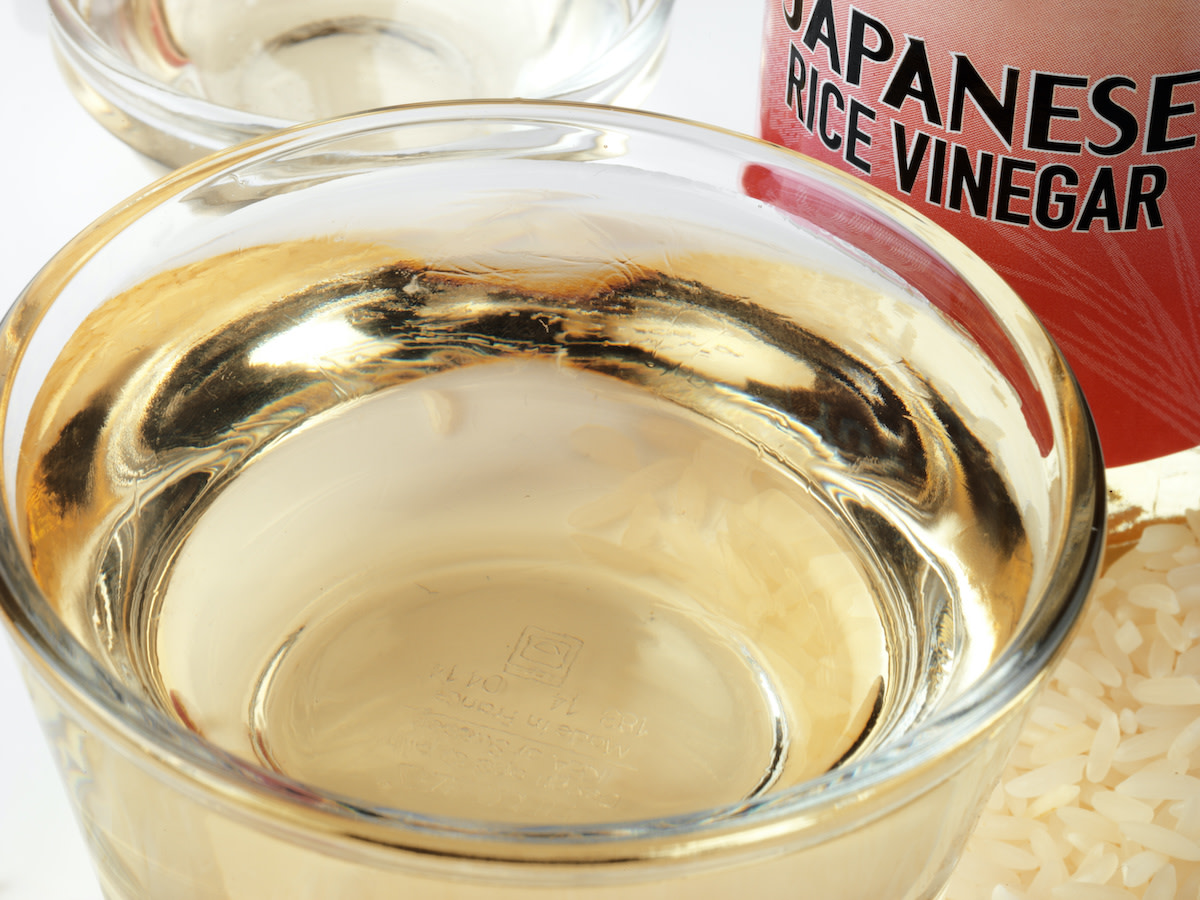Rice Vinegar vs. White Vinegar: What’s the Difference?
Written by MasterClass
Last updated: Sep 8, 2021 • 2 min read
Rice vinegar and white vinegar are different kinds of vinegar that share a crisp, clean taste.
Learn From the Best
What Is Rice Vinegar?
Rice vinegar is made from fermented glutinous rice. The sugars in rice are converted to alcohol (rice wine) and then, through a bacteria-laden second fermentation process, into the acid we know as vinegar. The flavor profile is typically far less acidic and milder than pure distilled white vinegar, balsamic vinegar wine, or malt vinegar. (Rice vinegar is not to be confused with rice wine vinegar, which is a sweeter and less acidic product that doesn't undergo the second fermentation process.)
4 Rice Vinegar Uses
Rice vinegar has many culinary uses and is a staple in Asian cuisine. Some uses for rice vinegar include:
- 1. Marinades: You can use rice vinegar to make marinades and dipping sauces. A mixture of soy sauce and rice vinegar is a popular condiment for Chinese or Japanese dishes.
- 2. Stir-frys: You can add rice vinegar to stir-frys for brightness and sweetness.
- 3. Vinaigrettes: You can use rice vinegar to make a vinaigrette or salad dressing.
- 4. Sushi rice: Rice vinegar is a key ingredient for making sushi rice.
What Is White Vinegar?
White vinegar, also known as distilled vinegar or spirit vinegar, is made by fermenting grain alcohol (ethanol) which then turns into acetic acid. Water is then added to the vinegar, so white vinegar is made of five to ten percent acetic acid and ninety to ninety-five percent water. The result is a clear, sharp vinegar that is relatively neutral in flavor. White vinegar is the most common kind of vinegar and is easy to find in any grocery store.
2 Ways to Use White Vinegar
White vinegar is a versatile product that you can use for culinary and household cleaning purposes.
- As a culinary ingredient: You can use white vinegar as a pickling agent for fruits and vegetables, or to make a vinaigrette, salad dressing, marinade, or sauce.
- For cleaning: There are special types of white vinegar specially made to be household cleaners. These typically contain twenty percent alcohol and are not suitable for consumption. You can use this antimicrobial vinegar to clean household items and surfaces and to remove stains in clothing.
Rice Vinegar vs. White Vinegar: What’s the Difference?
Rice vinegar and white vinegar are both acidic, but there are two key differences between the preparation and flavor. White vinegar is made by fermenting grain alcohol, while rice vinegar is made from fermented rice. Rice vinegar is less tangy and acidic than white vinegar, with a subtle sweetness. White vinegar, in comparison, is more sharp and harsh and has a neutral flavor.
Can You Substitute Rice Vinegar for White Vinegar?
You can substitute rice vinegar and white vinegar. To substitute rice vinegar for white vinegar, use a one-to-one ratio and add lemon juice or lime juice to add tartness. To substitute white vinegar for rice vinegar, add some sugar to balance the acidity.
Want to Learn More About Cooking?
Become a better chef with the MasterClass Annual Membership. Gain access to exclusive video lessons taught by the world’s best, including Niki Nakayama, Gabriela Cámara, Chef Thomas Keller, Yotam Ottolenghi, Dominique Ansel, Gordon Ramsay, Alice Waters, and more.
